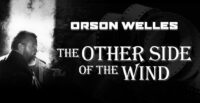“Buried Treasures” is a bi-weekly film series highlighting beloved films that have been either underseen or underappreciated. Every other week, one 25YL columnist will choose a film they think is deserving of additional praise and shine a spotlight on that film. The film chosen may be one that few have heard of, or maybe it will be one that was panned by critics. Either way, their spirited defense of the film will hopefully encourage more people to give it a chance and maybe even find a new favorite film. In a seemingly endless sea of negativity on the internet, “Buried Treasures” provides a space where positivity reigns.
In 1987, screenwriter Melissa Mathison (E.T. the Extra-Terrestrial) was preparing to adapt the French animated series Tintin for director Roman Polanski. To discuss the project, he asked to meet her at his home in France. Her husband, actor Harrison Ford, traveled with her in part to unwind from spending months in the Belize jungle filming The Mosquito Coast. The trio hit it off tremendously and by the time the Hollywood couple returned home, Ford had agreed to star in Polanski’s next movie, a Hitchcockian abduction mystery set in Paris.
Frantic, written by Polanski and his long-time writing partner Gérard Brach (Cul-de-sac, Repulsion, The Tenant and Tess) crafted, what was up to then, their most adult and straightforward story. Gone were the elements of Gothic horror prevalent in many of their past projects. Frantic would be grounded in reality. Of course, certain Polanski themes would remain; paranoia, fear, uncertainty, desperation, and danger.
Ford plays Dr. Richard Walker, an American cardiologist visiting Paris with his wife, Sondra (Betty Buckley), who have returned to the city after 20 years to commemorate the place where they were married. Much has changed between 1968 and 1988 and whatever romance they experienced in the city of lights and love back then, well, it’s going to be much harder to recapture this time around. Their luck seems to be cut out for them right away, as the taxi they’re riding in from the airport strikes a flat tire on the way to their hotel. Spending a drizzly morning on the roadside does not scream romance or even ‘welcome back’.
Sleep is the only thing on the Walker’s minds when they do manage to check into the hotel. Unfortunately, the suitcase containing their belongings has been mixed up with somebody else’s. They have a stranger’s suitcase which won’t open. Another headache. Time for some room service and a shower to refresh. During Dr. Walker’s shower, Sondra receives a phone call, which she attempts to tell her husband about, but he’s unable to hear her. Through the hot steam, we witness a few movements from her and moments later, when Richard emerges, Sondra has vanished (it’s almost as if she dissolved into the shower steam herself).
Dr. Richard Walker (Harrison Ford) begins to sense something strange regarding his wife Sondra’s sudden disappearanceWalker searches the halls, the hotel lobby, and even the female lavatory to no avail. His wife has disappeared and she is all alone—somewhere in Paris—without him. We are now in Polanski’s wheelhouse. This is the Polanski of Chinatown, nearly 15 years later. After that landmark 1974 private eye mystery, Polanski strayed from the detective mystery for many years and instead returned to his stomping ground of occult thrillers with The Tenant, went period piece for Tess, and then decided to make Pirates in 1986. Frantic was the director’s first foray into a realistic adult mystery during the 1980s.
Frantic and Chinatown take place in different countries at different times. While the latter took place in a blindingly sunny Los Angeles during the late 1930s, Frantic takes place in grey, overcast Paris during the late 1980s. Chinatown’s main character, J.J. Gittes (Jack Nicholson), is a slick private detective who’s used to mysteries and ploys and schemes and spouses stepping out on each other. Frantic’s Dr. Walker is a simple man—a skilled surgeon, loyal to his wife and comfy in his existence. Both men, however, are intelligent and intuitive and when something doesn’t add up, they rely on their brains and instincts to see them through. Gittes may deal with lies on a daily basis, but for Dr. Walker, this is all extremely new to him. Gittes has his partners in the firm to aid him; Walker has nobody. Gittes knows every nook and cranny within L.A. while Walker is in a strange country dealing with a language barrier. Polanski does a masterful job conveying the sense of helplessness consuming Dr. Walker, as the day ends and his wife has not come back.
A broken bracelet found in an alley belonging to Sondra leads Walker to an inept U.S. department in Paris. They don’t take Walker’s version of the events surrounding his wife’s disappearance seriously, and one can imagine the gleeful cackle Polanski must have had in depicting a pair of U.S. officials as egregious fools considering the director’s experience with U.S. authorities a decade prior.
Walker’s search for a clue, any clue, leads him to a Paris nightclub to find the person who owns the mystery suitcase. I’m sure that when poor Dr. Walker departed San Francisco to Paris 24 hours earlier, an all-night Parisian nightclub was not the place he imagined he would end up in but there you go. Walker makes his way to a dump of an apartment tenement where he makes a pretty gruesome discovery. This is where he first encounters Michelle (Emmanuelle Seigner), a young French woman who encounters the same grisly sight he does.
Emmanuelle Seigner makes a gruesome discovery in Roman Polanski’s FranticFor the first time, Walker is no longer alone and the pair—unlikely as they appear—remain joined together for the rest of the story. Like Gittes, Michelle knows this area inside and out (she even knows which rooftops to use to get around the city) and this is exactly the type of person Walker needs—someone who knows, lives, and breathes the streets of Paris. Frantic was Seigner’s first movie role (she was a former model and Polanski’s girlfriend during filming) and she delivers a killer debut. Seigner conveys innocence and toughness, shrewdness and even compassion in her role. Walker isn’t here to take care of her because she’s here to take care of him. Walker in his out-of-style grey sports coat, tie and slicked back hair is a sharp contrast to the fiery, smoky-eyed, leather-clad Michelle.
Harrison Ford and Emmanuelle Seigner make an unlikely pair in FranticAn odd trust develops between the two; Michelle senses it in that she’s just invited this strange man into her apartment who expresses that his only concern is for his missing wife. While Michelle is gorgeous, Walker doesn’t care. He’s a man of decency who at this moment happens to be caught up in a living nightmare. Alfred Hitchcock loved to place all-American men of decency in similar perilous situations. There’s something audiences love in witnessing these types of movies, and the message seems to be that you can be a decent person, but life will test that at times.
Now, we know the wife has been kidnapped, but by who and why are questions that remain. With a new ally at his side, Walker attempts to find out. To spoil something else beyond this point would be a large injustice, as the less the viewer knows about the plot details is for the better. However, there are details worth commenting on—the main one, of course, being the chemistry and back-and-forth between Walker and his cunning young partner from here on. Their adventure takes them all through the streets (and rooftops) of her city. One very memorable sequence sees Walker grabbing onto his young partner for dear life atop an apartment rooftop while retrieving a crucial object central to the mystery. Her near fall is one of the movie’s most thrilling moments, but the way she stares into his face as he pulls her up close to safety is the moment that packs the emotional punch. It would have been great to see Ford and Seigner appear in another film after this one because it truly was a great on-screen pairing.
Walker (Harrison Ford) hangs onto Michelle (Emmanuelle Seigner) for dear life in this tense moment from FranticAfter a decade pretty much away from the camera, Polanski returned with a stripped-down, low-key movie in Frantic. There are no sweeping aerial shots of Paris at night, no overtly fancy camera pans or swishes, and the editing (by the legendary Sam O’Steen) feels practically glacier compared to his other work with the director. There are one or two chase sequences here, but even they don’t really speed along. This is not a complaint, though, as Frantic moves at the speed that fits it. Ford as Walker makes us feel the agony in waiting for a clue or answer to come his way in the hopes that it leads him somewhere, somehow to his wife. It was a gamble to cast Ford in such a role considering the breathlessly dizzying, action/fantasy movies he was known for, but as always, Ford proves he is one of movie history’s most capable actors.
While Hitchcock, for the most part, relied on one composer to drive his stories (Bernard Herrmann), Polanski has worked with various composers throughout his career and for Frantic he chose the also legendary Ennio Morricone, fresh off his triumphant, fist-pumping, spirit-lifting score for The Untouchables. Morricone’s work here is much more subdued; it is full of mournful horns, flutes, and at times, his plucking strings sound very Herrmann-esque. Occasionally, the score features a strange, robotic, other-worldly sound which represents the sense of alienation Walker feels throughout most of Frantic. That is until he connects with Michelle.
If you’ve seen Chinatown, then you understand that Polanski does not tie things up neatly. In fact, I’d be hard-pressed to think of an instance where a Polanski movie featured what you would call a ‘happy’ ending. Violence and shock have a way of presenting itself in the world of Polanski (and if you know anything about certain incidents in his life, you’ll understand why).
Frantic functions wonderfully as a late ’80s mystery thriller (back when such a movie wasn’t a scarcity to actual movie theaters), but it also represents something within Polanski. He lost a wife back in the late 1960s, and Walker lost his wife in this movie. Polanski married Seigner in 1989, and unless they returned to Paris in 2008 and another kidnapping took place, it’s safe to assume that the Walkers are still together.
Just as in Chinatown, Roman Polanski’s Frantic suggests violence is an inescapable factor in life.If you haven’t seen Frantic, I hope this reexamining will encourage you to seek it out. If you’re a Polanski fan or a Ford fan or even a fan of slow-burn mysteries, then this movie is one you’ll appreciate. It’s available on Blu-ray in one of those Warner double-feature packages along with Presumed Innocent (also featuring Ford). Hopefully, a standalone release with a full remaster and features delving into this movie will come along soon (perhaps done by the folks at Criterion, Arrow or Shout!). It’s a true return to form for a master director.!



